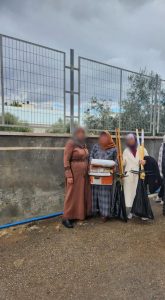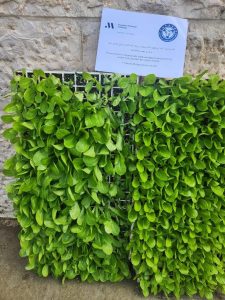 Se sabe sobre Palestina que las tierras agrícolas son abundantes, aunque no hay dependencia del comercio local si hay una gran dependencia del comercio exterior, y no hay equipos agrícolas adecuados para trabajar estas tierras.
Se sabe sobre Palestina que las tierras agrícolas son abundantes, aunque no hay dependencia del comercio local si hay una gran dependencia del comercio exterior, y no hay equipos agrícolas adecuados para trabajar estas tierras.
Por lo tanto, este proyecto trabajó para proporcionar equipos agrícolas para facilitar el trabajo a los agricultores durante el cultivo y proporcionar diferentes plantones agrícolas.
El principal objetivo del proyecto es potenciar las actividades productivas locales mediante el fortalecimiento de las capacidades de las pequeñas unidades agrícolas dirigidas por mujeres en Tarqumiya como garantía de resiliencia y seguridad alimentaria, para contrarrestar el impacto del Covid-19 en los territorios palestinos.
Se entregaron equipos agrícolas y plantones a 50 titulares de derechos para cultivar variedades locales como tomates, pepinos, calabacines, coliflores y berenjenas, según la temporada.
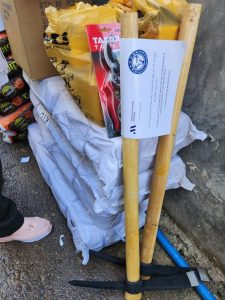
Se trabajó la tierra para que se convirtieran en productos de alta calidad y con precios competitivos, para reducir la dependencia del comercio exterior que sufren los territorios palestinos y la inseguridad alimentaria de la población local.
Asecop Palestina se coordinó con el Ministerio de Agricultura de Hebrón para apoyar a los agricultores y darles asesoramiento.
Versión original en inglés escrita por Marah Hijazi
Reinforcing the capacities of small agricultural units
It is known about Palestine that agricultural lands are abundant, but there is no dependence on local trade and there is a great dependence on foreign trade, and there is no proper agricultural equipment to use these lands.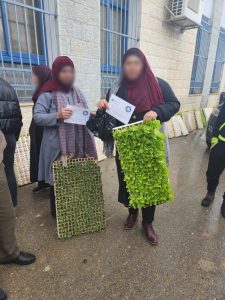
Therefore, this project worked on providing agricultural equipment to make it easier for farmers during cultivation and worked on providing different agricultural seedlings.
The main objectives of the project are to enhance local productive activities by strengthening the capabilities of small agricultural units run by women in Tarqumiya as a guarantee of resilience and food security, to counter the impact of Covid-19 on the Palestinian territories.
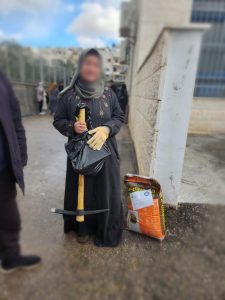
Agricultural equipment and seedlings were handed over to 50 rights holders to grow local varieties.
Such as tomatoes, cucumbers, zucchini, cauliflower, and eggplant, according to the season.
And it was cultivated to become products of high quality and competitive prices to reduce the dependence on foreign trade that the Palestinian territories suffer from and the food insecurity of the local population.
Asecop Palestine arranged with the ministry of agriculture in Hebron to support farmers and give them advice.
